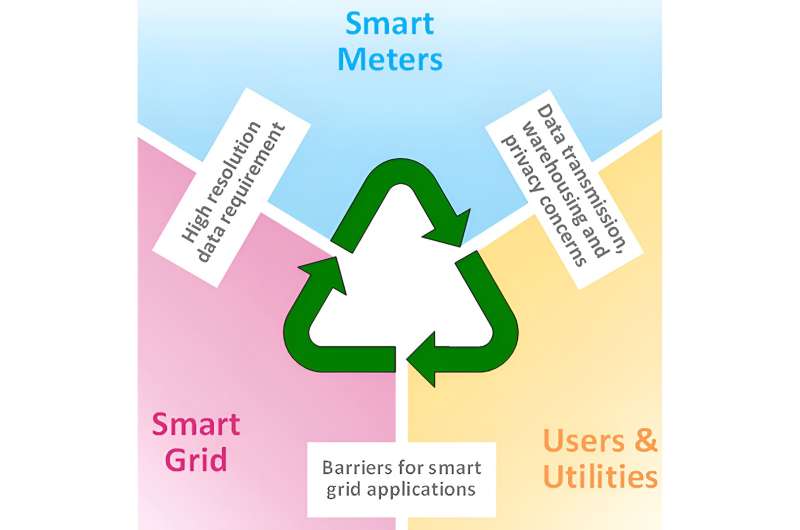

Path to lower emissions demands a smarter grid, say researchers
source link: https://techxplore.com/news/2024-02-path-emissions-demands-smarter-grid.html
Go to the source link to view the article. You can view the picture content, updated content and better typesetting reading experience. If the link is broken, please click the button below to view the snapshot at that time.

February 22, 2024
Path to lower emissions demands a smarter grid, say researchers
by Michele Ann Nardelli, University of Adelaide

Researchers at the University of Adelaide believe the global investment being made in smart metering infrastructure could fall short of fulfilling promised benefits to customers if key systems issues are not addressed.
Throwing open the challenge to other energy systems researchers, Dr. Ali Pourmousavi Kani from the University's School of Electrical and Mechanical Engineering, says smart meters and smart metering systems require a new level of sophistication if they are to play a useful role in supporting more efficient energy use and smart functioning grids.
Research from Dr. Pourmousavi Kani's team, led by Ph.D. candidate Rui Yuan, examined the data that are gathered from energy systems in Australia, Europe and North America.
The team's findings, published in the journal Cell Reports Physical Science, reveal inadequate sampling resolution and frequency of communication of electricity consumption data, and a failure to address a range of data issues such as data warehousing and privacy concerns.
"Issues with data gathering from energy systems present significant handicaps to the emergence of truly smart grids," Yuan says.
"In Australia and around the world there is a push to install new and smart digital meters that have the capacity for two-way communication to the grid.
"For instance, the Australian Energy Market Commission (AEMC) has recommended 100% uptake of smart meters by 2030, and the EU expects 225 million smart electricity meters to be installed by 2024.
"However, most smart metering infrastructure doesn't yet have the capacity or is not operated to communicate consumption data in more than 30 minutes to one hour sampling resolution in real time and feed that back to consumers and service providers."
The quality of energy consumption data depends on the frequency that it is collected: higher frequency of collection provides a better picture of consumption patterns.
"Big promises came along with the push to digitize the energy grid, including many benefits to consumers from features that would allow them to monitor their energy use and make choices to opt into better services that could be provided by third parties," says Yuan.
"In the U.S. less than 3% of smart meters can deliver on these promises, and globally the situation is similar."
For example, Yuan says, the European Commission reported that 7 out of the 16 countries undergoing widespread deployment of smart meters lacked the ability to even relay consumption data back to consumers, and in parts of Canada, wireless smart meters are only read every 30 or 60 days in line with the normal manually-read billing cycle.
The research team touched on several barriers to developing high functioning smart metering infrastructure.
"In Europe we found that smart meters did not have the bandwidth required to transmit the large amounts of data for high resolution readings and in parts of Asia there were issues with slow communication links," Kani says.
More information: Rui Yuan et al, Unleashing the benefits of smart grids by overcoming the challenges associated with low-resolution data, Cell Reports Physical Science (2024). DOI: 10.1016/j.xcrp.2024.101830
Recommend
About Joyk
Aggregate valuable and interesting links.
Joyk means Joy of geeK